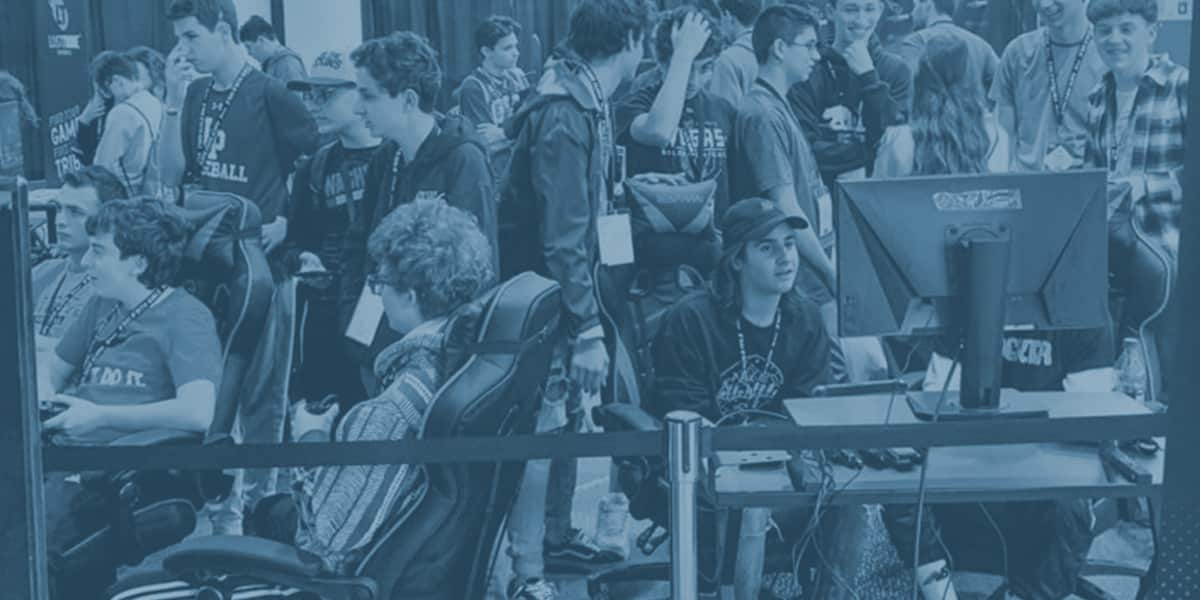By Lenny Silberman
By now you’ve most likely aware of the phenomenon of esports. You may recall reading about the exploding popularity of multi-player, competitive video gaming a year ago in my post here at eJewishPhilanthropy.
You may have seen news reports about the global viewership of esports rivaling that of the major sports leagues, of the elevation of esports teams to varsity status at dozens of colleges, or of the phenomenal financial successes of online gaming streamers. If media coverage is any gauge, esports has moved into the mainstream of North American culture.
Perhaps you’re one of the tens of millions of adults around the world who have watched a child, grandchild, niece, or nephew disappear into the virtual world of the game called Fortnite during the past year – or have seen them passionately awaiting the latest release of Super Smash Bros Ultimate, or Madden NFL19.
The truth is, if you know anyone between the ages of 13 and 19, you probably know a passionate gamer. According to an April 2018 Pew study, 83% of teenage girls play some form of video games – and an astonishing 97% of boys.
Think about those numbers for a moment. That’s four out of five girls and virtually every boy.
Did rock music in the 1960s have that level of popularity? Did the Internet engage teens on that scale in the dial-up ‘90s?
If memory serves, the answer to both questions is no. But if you think of the centrality of rock music to the Boomer experience, and the influence of the Internet on Millennials, you’re getting an idea of the formative role video gaming may play for Generation Z. The question isn’t whether kids are gaming, it’s which games they play; it isn’t whether they connect with other teens via gaming, it’s how many hours a week (or a day) they are connecting.
Any phenomenon embraced and practiced regularly by anything close to 83-97% of teens in America is no fad. It’s not even a movement – it’s a cultural tsunami.
Young people are always drawn to social and cultural phenomena during adolescence, but the ones that approach unanimous participation contain a common element – they offer a new vehicle for self-expression and connection with peers. Teens flock to any milieu in which they can explore and discover, seek their tribe, build community, and forge their identity.
That is precisely what we’re seeing in the teen space today with esports.
When BBYO invited Lost Tribe Esports to bring gaming to its International Convention in Denver last month, I had no idea what to expect. We set up an 18-station esports arena in a far corner of the exhibition hall. We did no advance marketing. We were open for play only during designated free times, scattered throughout the convention’s busy schedule. We were competing for attention during those times with a full slate of celebrities, entertainers, and activities, along with the most distracting presence of all for teens – their peers. Needless to say, my expectations were modest as we powered up the PCs and consoles in our distant corner.
Despite our low profile, our location, and all the distractions, they found us.
Over 1,000 of the teens in attendance “chilled” with us, gamed with us, and shared their contact information. 700+ filled out our survey, from which we learned that 85% of them are regular gamers — much in line with the national averages cited by Pew.
Even more importantly, we witnessed first-hand where esports sits in the teen landscape. We saw how it attracts competitive and casual gamers alike, along with those who prefer to just watch and be part of the scene. We saw not a hobby, but a campfire around which teens gather. By the end of the convention, we learned that for this digital-native generation, esports is a medium of communication.
Our experience at BBYO taught us to think of esports as a language… and that teens are ready to speak this language with us. We just need to learn how to speak it back.
Once we do, we can establish trust – and a rapport that opens doors to productive engagement with Generation Z. We can connect gamers year-round, to each other and to a world of Jewish youth that is literally global. Jewish values, seen through the lenses of sportsmanship and teamwork – and introduced into the esports space – can create a gaming environment significantly different from the others available to teens – and distinctly Jewish. And when teens are gaming with us online, we can introduce them to local, national, and global opportunities to get involved in Jewish life, including in Israel and with Israeli teens.
We are in dialogue with national Jewish umbrella organizations eager to speak the language of esports and connect with the next generation. From the convention in Denver we move into the virtual world, with a series of online tournaments for BBYO teens, and with college students on several campuses through Hillel International. We are partnering with FJC – and working with professionals from NCSY and JTS – to develop an esports-centric curriculum for summer camps, and are looking to keep campers connected in the off-season through online tournaments. In conjunction with JCC Association, we are bringing esports to the JCC Maccabi Games in Atlanta and Detroit this summer.
But most importantly, we’re embarking on a conversation with Generation Z. One that begins with esports – and ends with Jewish engagement.
Lenny Silberman is founder and CEO of Lost Tribe Esports. He was formerly CEO of Henry Kaufmann Campgrounds in New York City, and continental director of the JCC Maccabi Games from 1994-2008.

